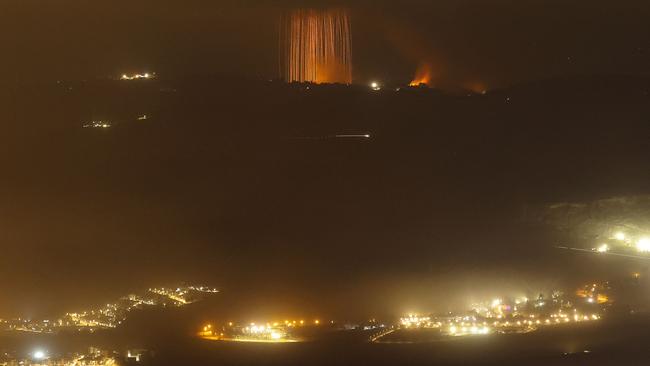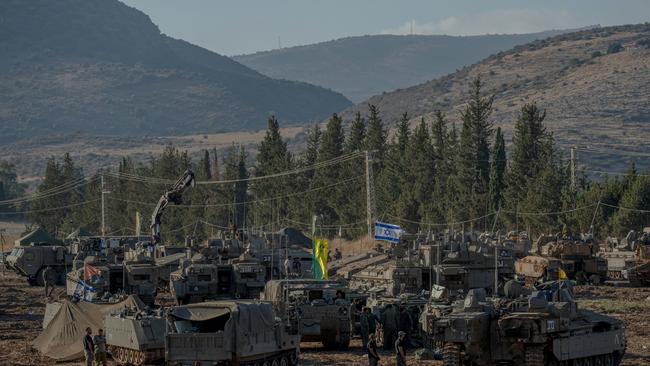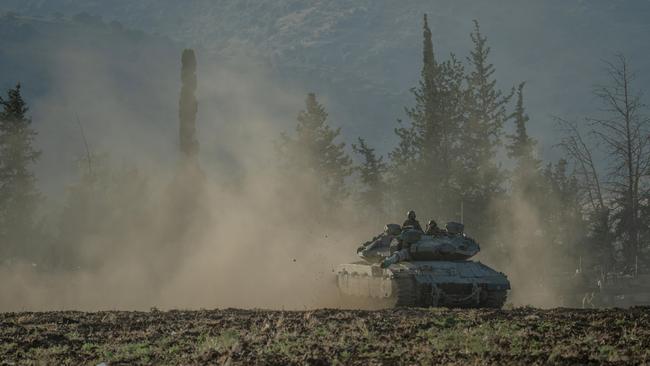Israel moves to stop a second October 7 with Lebanon invasion to finish the job on Hezbollah


Israel sees this as a pivotal opportunity to permanently redraw the military balance on its northern border with Lebanon at a time when it has decapitated Hezbollah’s leadership through an astonishing series of targeted assassinations.
This is a military campaign that was forced on Israel by Hezbollah’s refusal to stop attacking Israel through almost daily missile and drone strikes against it. There is no doubt, like Israel’s war against Hamas in Gaza, that Israel is entirely justified in carrying out its campaign to remove the terrorists who are attacking it and who would seek to destroy it.
The challenge for Israel now is to achieve its aims of removing Hezbollah’s ability to strike Israelis without causing excessive civilian casualties in Lebanon and without suffering heavy military casualties itself. It is far from clear if this is possible.

From Israel’s perspective, this ground operation is the right move at the right time. With the assassination of Hezbollah leader Hassan Nasrallah and numerous other Hezbollah commanders during the past two weeks, Israel has crippled the leadership of the Iranian-backed terror group.
Israel will never get a better opportunity to move into the border region to destroy the Hezbollah military infrastructure that could be used to attack it in the future.
Although Israel has complete air superiority, only troops on the ground can properly dismantle the network of tunnels and other military equipment in Southern Lebanon. Israel is seeking to remove two types of threats: the first is Hezbollah’s ability to keep firing missiles into northern Israel from southern Lebanon, and the second is to clear the immediate border area of Hezbollah fighters and assets in order to prevent a repeat of the Hamas-style cross-border attack on Israeli civilians – an attack Israel claims Hezbollah was planning.
But having sent troops into southern Lebanon, Israel must now make some critical and high-stakes decisions.

At the moment, it has sent only small teams of special forces soldiers across the border to disable Hezbollah military assets. Does Israel now choose to enlarge its operation into a broader invasion of southern Lebanon? This would allow Israel to dismantle far greater numbers of Hezbollah sites further into Lebanon, removing more potential threats into the future.
Yet a broader ground war in the south would mean far higher civilian death tolls and destruction for the Lebanese population, many of whom do not even support Hezbollah. It would also greatly increase the dangers of high Israeli military casualties, given that Israelis would be fighting Hezbollah on its own territory in a landscape that favours the defenders.
A broader offensive would also increase the risk of retaliation against Israel from Hezbollah’s master, Iran, although Iran has so far shown no stomach for taking on Israel in a serious fight beyond its own regional terror proxies.

It seems highly unlikely that Israel would send ground troops any further north than southern Lebanon. Israel’s strategic aims in this conflict are defensive. It does not wish to occupy any part of Lebanon, but it is determined to prevent Hezbollah from repeatedly attacking it. Israel rightly wants to create the secure conditions for more than 60,000 Israelis – who have been displaced by Hezbollah’s year-long attacks – to be able to return to their homes in northern Israel. If Hezbollah agreed to stop attacking Israeli territory, there would be peace tomorrow.
Hezbollah has caused this conflict through its own aggression and the terror group is now paying the price. But this new ground offensive has raised the stakes for Israel and for the region. Dangerous days and difficult decisions lie ahead.





Israel’s decision to send troops into southern Lebanon is a bold and historic push to prevent Hezbollah from ever repeating the sort of deadly cross-border massacre that Hamas perpetrated on October 7 last year.